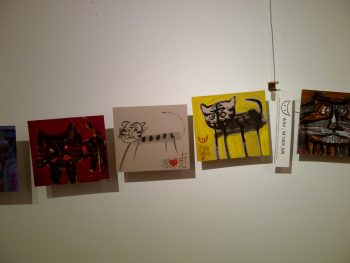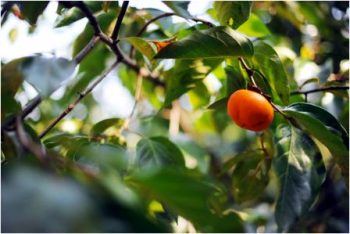Archive for 'Grammar'
The Importance of Being a Tiger— Tiger Motifs in Korean Art Posted by Linda on Dec 23, 2011

A tiger 호랑이, or the transliteration “ho-rang-i”, is a significant motif in Korean culture, especially in the realm of folklore and folk paintings. 호랑이들 represent courage and pride; they are also a good luck symbol. Korean folk paintings, known collectively as 민화, or the transliteration, “minhwa” were the common people’s art formin the late Joseon…
Korean Persimmons Posted by Linda on Dec 10, 2011

It’s harvest time in Korea, and autumn (October to early December) is the only season persimmons are plentiful. If you live in Korea, you will see them being sold everywhere—from outdoor markets, grocery stores, to subway stations. For about 1,000 won, you can buy four to five persimmons. An affordable and healthy treat, persimmons…
Korean Homophones Posted by Ginny on Aug 27, 2011
Homophones are words that are pronounced the same but have a different meaning. Here are some of the most common Korean homophones: Horse (말) Ex: 말을 타기 싫다 = I don’t like to ride a horse Word/speech/speak/talk/language (말) Ex: 약간 망설이다가 그는 말하기 시작했다 = After a slight hesitation he began to speak Three (세)…
Before…to begin….to start Posted by Ginny on Aug 16, 2010
The construction ~기 전에 can be used to mean “before I do something I ___” 운동하기 전에 옷을 갈아입었어요 = Before I exercised I changed my clothes (운동하기 = [I] exercise. 전에 = before. 옷 = clothes. 을 = particle. 갈아입었어요 = changed) This construction can also be used in the future tense : 밥을…
To Be Easy or Hard Posted by Ginny on Jul 29, 2010
To express that something is easy to do, use ~기 쉽다 이 숙제는 풀기 쉬워요 = this homework is easy to solve (이 = this. 숙제 = homework. 는 = topic marker. 풀기 쉬워요 = easy to solve) To express that something is hard to do, use ~기 어렵다 영어는 배우기 어려워요 = English is…
Have you ever…I have… Posted by Ginny on Jul 11, 2010
To express that you have done something, use ~본 적(이) 있어요 : 유럽에 가본 적(이) 있어요 = I have been to Europe. (유럽 = Europe. 에 = to. 가 = go. 본 적(이) 있어요 = have been) The (이) is optional. In daily speech the 이 can be dropped. ~본 적(이) 있어요 can be used…
The Conditional Posted by Ginny on Jun 23, 2010
To express the conditional, use ~(으)면 : 추우면 에어컨을 끄세요 = If it’s cold, please turn off the air conditioner. (추우면 = if cold. 에어컨 = air conditioner. 을 = object particle. 끄세요 = please turn off) The usage for ~(으)면 can be used to express hypothetical events as well as events that are likely…


